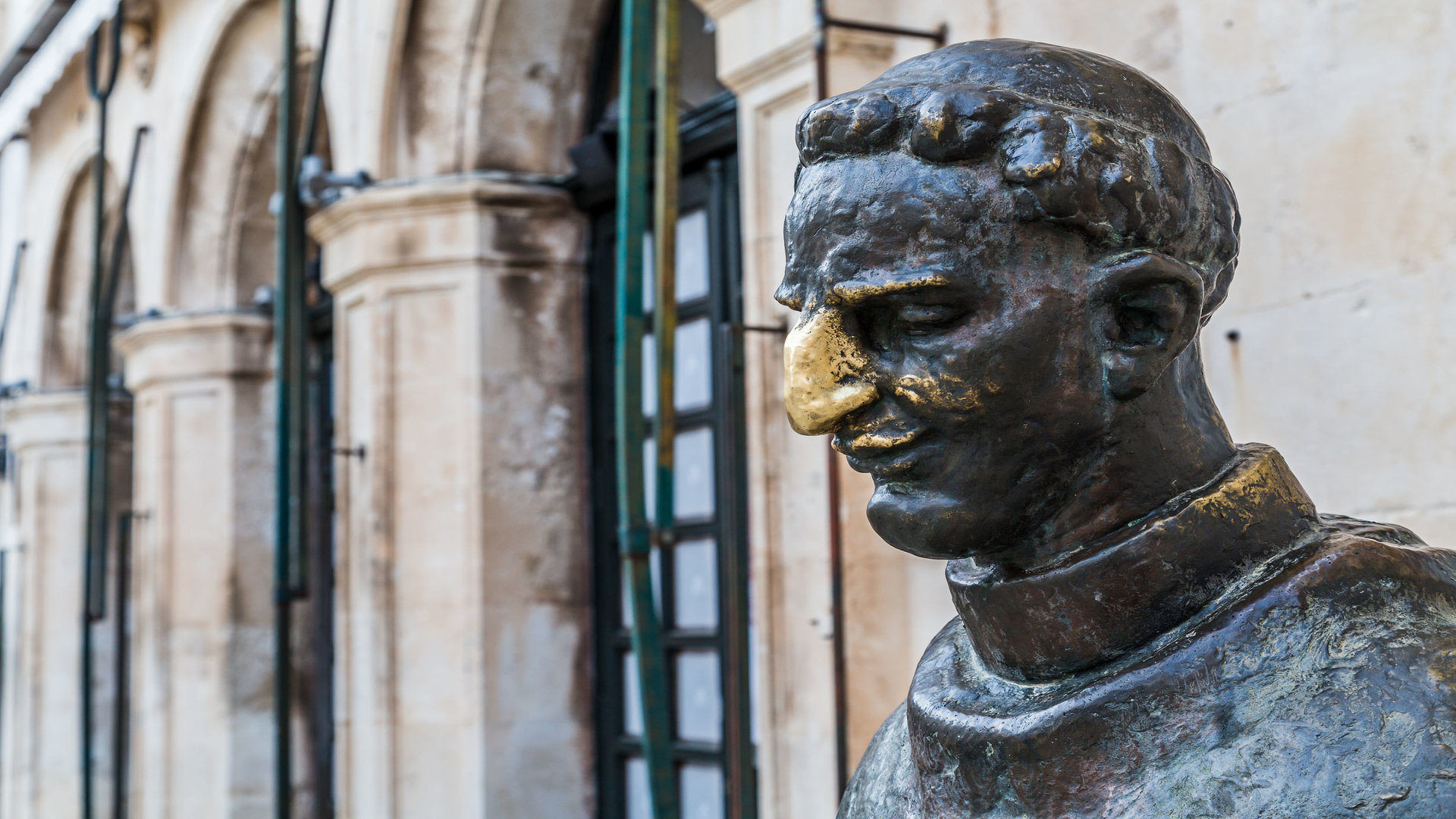
Marin Držić – a Rebel with a Cause
“Oh my, oh my, how old I am, what brought me to this, that I am forced to fight with my son for harmony.”
Marin Držić is Dubrovnik’s favourite son. A playwright and author of considerable note, Držić is often considered as Croatia’s Shakespeare. Born in 1508 into a large and well-heeled Dubrovnik family, Marin had six sisters and five brothers; the young playwright was rebellious in more ways than one. His early years of education were problematic and his father decided to send him to Sienna in Italy, away from what he believed to be negative influences, to study Church Law. However Marin’s academic frustrations continued and before long he was on his way back to his native city.
There was a genius inside Marin that was fighting to make itself heard. It can be argued that Marin himself fought against this genius, he joined a band of outlaws, became a conspirator and even tried to overthrow the Republic of Dubrovnik. But the genius shone through in the end. His writings flowed from him to the paper, and it soon became clear that he was doing what he was born to do – create masterpieces.
Comedy was his new weapon. His comedies are regarded as among the best in European Renaissance literature. And through his works he was able to unleash his contempt for the state and government, sarcasm was his greatest power. His four most well-known plays are still regularly included in festivals and drama productions. “Dundo Maroje,” or Uncle Maroje, is probably his most famous play and has appeared in theatres all over the world. The opening line of this text is indeed the first line from Uncle Maroje. The Dubrovnik Summer Festival simply isn’t the same without Dundo Maroje.
Another work that must be high on the list of Držić greats is “Skup,” or The Miser. It is often compared to the works of Moliere and again is a witty look at the family and of popular conventions. Držić was certainly writing from his own experiences and often wrote with no holds barred. “Pomet” was the first of Držić's plays however the manuscript was unfortunately lost; it is believed that this work was the forerunner for Uncle Maroje. Still to this day pupils and students in Croatia study the plays and writings of Držić, a fitting legacy to the life of this much loved Dubrovnik citizen.
